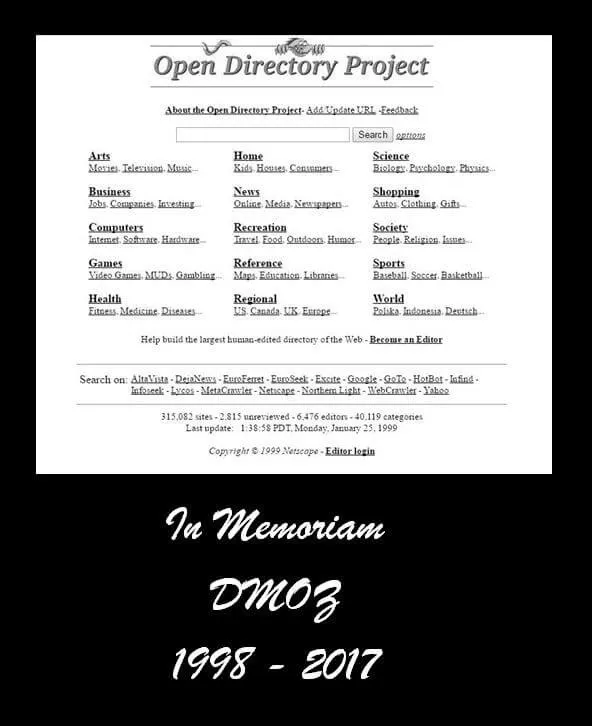DMOZ, the quick and easy way to get a high authority link (which was never quick or easy), is officially dying. As of 14th March DMOZ, aka the Open Directory Project, will be closing its doors and abandoning its attempt to “organise the web”.
DMOZ was launched in 1998 as a rival to the venerable Yahoo Directory. In less than a year, Google was created and effectively made the directories utterly redundant to web users. Google gave users the ability to search every webpage with a relevancy that even the directories’ myriad of folders and categories could not match. In essence, Google made search easy.
It wasn’t long before search relevancy became automated and the need for directory editors dwindled further and further. Eventually, Yahoo closed their directory, but DMOZ lived on.
Since it was owned by Google, DMOZ became the only directory anywhere that Google cared about. This gave DMOZ a massive authority and search marketers fell over themselves to get a link on DMOZ. But the process of getting a link on DMOZ is a mysterious and frustrating affair. Compounding this problem is that DMOZ would never tell you that you’d filled in their precise guidelines incorrectly. Some SEOs would go years trying to get links for their clients and businesses on DMOZ and never succeed. In some ways, while pretty irrelevant to most marketers, searchers and the general public, DMOZ became something of a challenge to SEOs trying to grab an “easy” link.
Putting a site link in a directory is old hat now, of course, and it’s a wonder that DMOZ didn’t die sooner. Despite the dedication to organising the web by the 90k DMOZ editors, we believe it’s the site’s venerable authority as a linkable site that’s kept it alive. Let’s face it, no one has used a directory to search the web in over a decade.
So here’s to DMOZ, a site made redundant by automation, machine learning and the never ending march of progress. We for one, won’t miss you!







